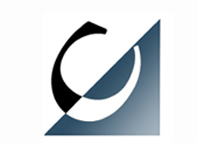Directed by Nora Lustig since 2008, the CEQ was designed to analyze the impact of taxation and social spending on inequality and poverty in individual countries, and provide a roadmap for governments, multilateral institutions, and nongovernmental organizations in their efforts to build more equitable societies.
The main purpose of CEQ is to inform governments of how their fiscal policy affects their equity goals, recommend practical measures, and enhance accountability and transparency through better data collection and evaluation systems. In order to achieve this, CEQ Assessments use incidence analysis and a specially-designed diagnostic questionnaire to address three questions:

- How much inequality and poverty reduction is being accomplished through social spending, subsides and taxes?
- How equalizing and poverty reducing are specific taxes and transfers?
- Within the limits of fiscal prudence, what could be done to increase redistribution and poverty reduction through changes in taxation and spending?
The CEQ Assessment provides the first comprehensive analysis of how taxes and social spending (including indirect subsidies and taxes, and education and health expenditures) affect income inequality and poverty in a country. The assessments are comparable across countries and over time. The country-level studies examine the distributional effects of individual programs and policy measures—and the net effect of each country's mix of policies and programs. The results will give policy makers, multilateral institutions, and nongovernmental groups the data and analysis necessary to determine what changes in tax and spending policies will lead to greater equality and poverty reduction.
The CEQ diagnostic questionnaire examines whether governments collect and allocate enough resources to support a minimum living standard for all; whether they collect and redistribute fiscal resources progressively; whether their expenditures are fiscally sustainable and their programs of reasonable quality; and whether they are responsibly transparent, i.e., they collect and make public sufficient information, and are subject to independent evaluations.
The CEQ provides new opportunities for civil society organizations to monitor the distributional effects of government taxes and spending. It will also provide a critical source of information and analysis for international donors regarding external resources needed to meet specific goals in low-income countries. And the CEQ results can also be used to monitor the situation of minority and other excluded groups—including for example, Afro-descendants and indigenous groups--and determine the extent to which government taxes and spending affect their incomes and well-being.
The CEQ project is an initiative of the Center for Inter-American Policy and Research (CIPR) and the Department of Economics, Tulane University, the Center for Global Development and the Inter-American Dialogue. The project's main output is the CEQ Assessment, a methodological framework designed to analyze the impact of taxation and social spending on inequality and poverty in individual countries. The main objective of the CEQ is to provide a roadmap for governments, multilateral institutions, and nongovernmental organizations in their efforts to build more equitable societies. Since its inception, the CEQ has received financial support from Tulane University's Center for Inter-American Policy and Research, the School of Liberal Arts and the Stone Center for Latin American Studies as well as the Bill & Melinda Gates Foundation, the Inter-American Development Bank (IADB), the World Bank, the United Nations Development Programme's Regional Bureau for Latin America and the Caribbean (UNDP/RBLAC), the Development Bank of Latin America (CAF), the African Development Bank, the International Fund for Agricultural Development (IFAD), the Canadian International Development Agency (CIDA), the Norwegian Ministry of Foreign Affairs, and the General Electric Foundation.
